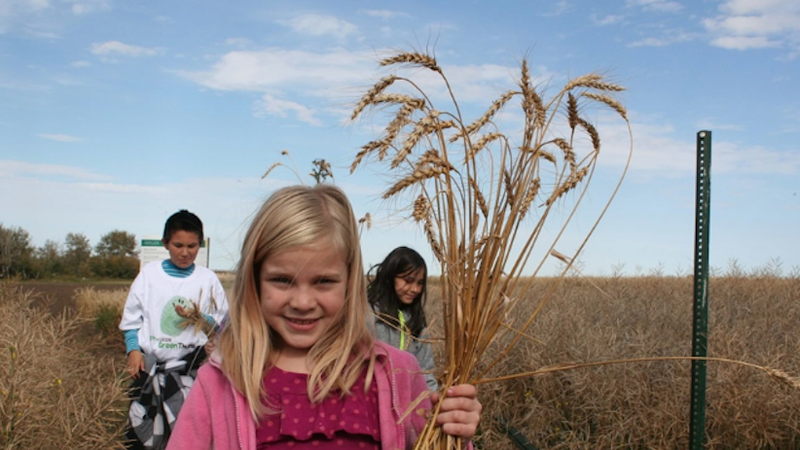Agriculture in the Classroom — Saskatchewan (AITC-SK) is celebrating the 10th anniversary of its Food Farm program, which immerses students in the sights, sounds and smells of the industry while communicating its importance.
The Food Farm program teaches students in Grade 3 from where their food comes by having them actively participate in growing the ingredients for familiar foods such as pizza, burgers and fries.
Youths visit an area farm and work through eight fun and engaging stations highlighting different aspects of agriculture — such as bees, farm safety, water management, dairy, and equipment — that give them a memorable experience they likely wouldn’t find anywhere else.
The students will also plant vegetables and crops such as canola and wheat. They then return to that farm site in the fall as Grade 4s to help harvest their bounty and learn more about agriculture.
To celebrate the program’s 10th birthday, AITC-SK will promote the event in 10 locations next month. The educational tour will stop at a farm northeast of Moose Jaw on Thursday, June 8, while students and their teachers can visit from 9:45 a.m. to noon and 12:30 p.m. to 2:45 p.m.
To register, visit https://aitc.sk.ca/programs/food-farm.
“It’s a really cool experience for the students because they get to be part of the full cycle of farming,” said Chandra Gusikoski, AITC-SK communications manager.
“They make the connection from the foods they grew, like the potatoes to make French fries. Or, one of the stations, they might actually thrash the wheat and put it through the grinder to make the flour … used for pizza dough or their buns for their burgers,” she continued. “So it really gives that farm-to-fork connection for the students.”
It’s important that students understand from where their food comes, that they realize agriculture is all around them and that everyone is connected to the industry via what they eat, Gusikoski said. Furthermore, in some rural communities, they need to realize some of their friends’ parents are likely involved in growing the food they consume.
“So to bring a little bit of light to how important the work is that farmers in the province are doing,” she remarked.
AITC-SK wants students to be as hands-on as possible because having dirty and messy hands indicates how involved the youths were in the activities, Gusikoski said. Whether it’s painting with soils to learn about textures or crushing canola seeds to see the liquid, the organization ensures students touch everything so they absorb the knowledge better.
For classes unable to attend the in-person event, there is an online program that involves videos and hands-on activities.
Gusikoski added that it’s great having industry partners volunteer to make the program a success.




